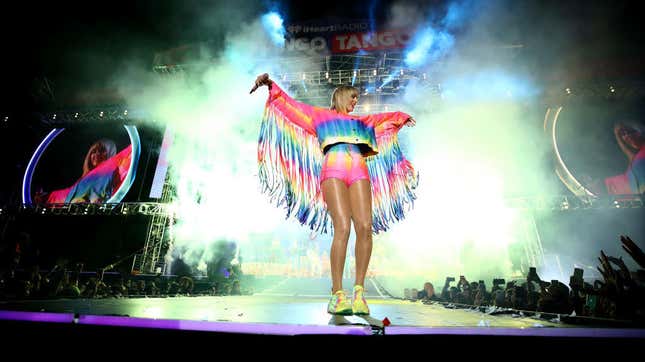

Taylor Swift, designated gay icon by the Kaylor community and herself, can explain the whole rainbow, glitter-dusted, LGBTQ celebration that her new album Lover has brought us. Because while it seems like it’s done in good faith, it also feels like it came out of nowhere.
In a Vogue cover story by writer Abby Aguirre—who seems to think gay advocacy has been an explicit theme in Swift’s songs, apparently for years, including the lyric “boys and boys and girls and girls” in “Welcome to New York” (to which I say, mmkay)—Swift explained, essentially, why now. Why drag queens and rainbow flags in her messaging now? Aguirre asked about it:
-

-

-

-

-

-

-

-

-

-

-

-

-

-

-

-

-

-

-

-

-

-

-

-

-

-

-

-

-

-

-

-

-

-

-

-

-

-

-

-








































